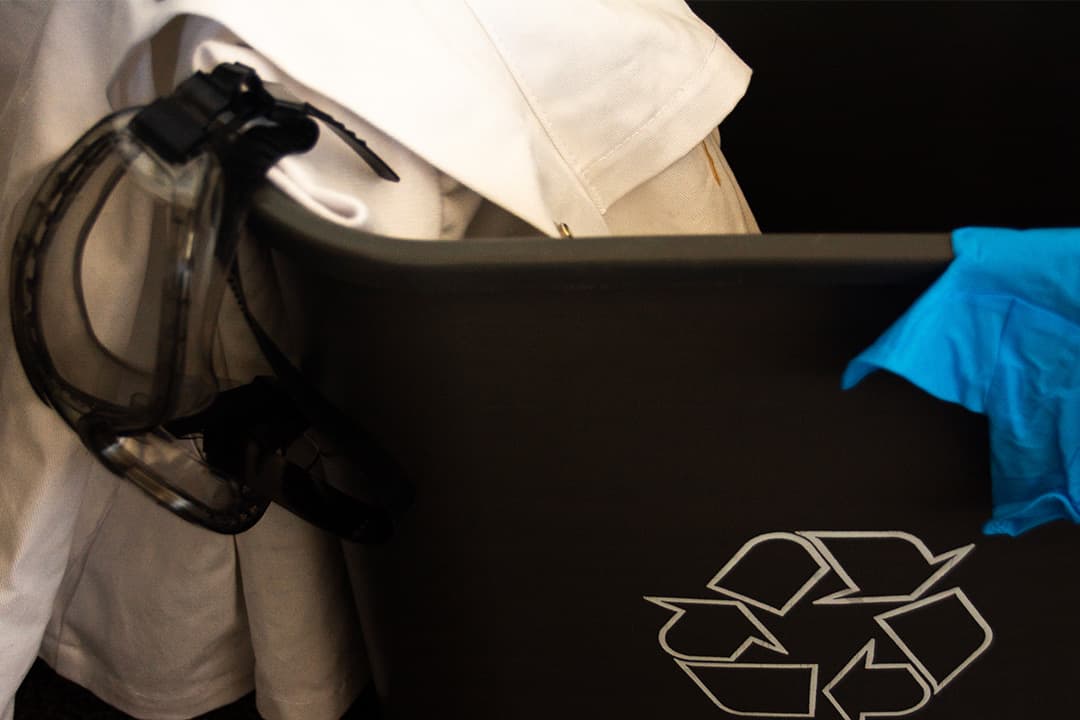As U of T embarks on its campus-wide climate initiative with the Climate Positive Campus campaign, the Sustainability Office at UTSG’s Facilities & Services (F&S) is also hoping to integrate sustainability into over 1,000 science labs across the campus.
F&S launched the Sustainable Labs initiative in April 2022 to lessen the environmental impact of science lab operations. In addition to labs, F&S is also planning to promote sustainability in offices, residences, course content, and events on campus.
According to F&S, typical lab buildings consume 40 to 60 per cent of the university’s energy. The Sustainable Labs initiative aims to provide resources for science labs looking to increase their sustainable water and energy use, as well as chemical and waste management.
In an email to The Varsity, Scott Hendershot, senior manager of the F&S Sustainability Office, wrote that the initiative provides researchers with alternatives to using hazardous chemicals when possible. This includes sourcing chemicals made with renewable materials or using a computer simulation when the use of chemicals is not necessary.
Hendershot also explained that while many of a science lab’s inner workings can be made more sustainable, some practices need to remain unchanged for safety purposes.
“Due to the nature of the research, some scientific laboratories produce more waste and consume more energy. Some waste is unavoidable, and some types of lab equipment — such as fume hoods, ultra low temperature (ULT) freezers and temperature-sensitive thermal cyclers — are especially energy intensive,” wrote Hendershot.
Fume hoods are required to remove noxious fumes from spaces, but also use much more energy than the typical household.
The Sustainable Labs Program also offers a certification program for labs that take steps to incorporate sustainability into their work. “Through this certification program, users learn how to minimize use of the equipment itself, and to reduce energy consumption when in operation,” wrote Hendershot.
Four labs have been certified so far, including the ReSTORE Lab, which studies ways to improve mental and physical health in the workplace, and the Sinton Lab, which researches renewable fuels, industrial fluids, and biotechnology. Hendershot expects more labs to achieve certification in the coming months, adding that the overarching goal of the campaign is for all labs to get certified.
David Sinton, a professor of mechanical engineering and the Canada Research Chair in microfluidics and energy at Sinton Labs, wrote that sustainability is central to the lab’s research work, so the lab embraced the chance to participate in the U of T Sustainability Office’s initiative.
“It was nice to receive silver certification, but the real win was learning about how our operations could be more sustainable,” wrote Sinton in an email to The Varsity.
“I appreciated that we could make some mostly-painless early wins and some of those were high-reward. We are of course focused on how to keep those gains and how to advance further,” wrote Sinton.


